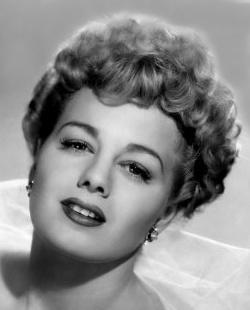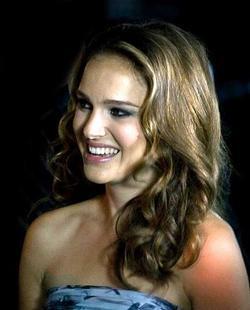Activist Actresses
Hollywood has always had a complicated relationship with Judaism. The early film industry was shaped by Jewish producers and studio executives, but save for a few assimilation narratives in the 1920s, these producers failed to document their own culture on the silver screen. It wasn’t until the 1960s that movies featuring openly Jewish actors and characters became popular—but even today, some commentators say that Hollywood doesn’t portray Jewish culture as accurately or widely as it should.
Two actors who gracefully navigated Hollywood’s contradictory attitude towards Jews are Shelley Winters and Natalie Portman. Both women are known for their wide-ranging acting ability, their embrace of their Jewish identities, and their commitment to social and political activism alongside their acting careers.
Shelley Winters starred in 100 movies, 50 stage plays, and countless television shows over the course of her career. Her infatuation with the stage started early; as a teenager, she would cut class to sneak into Broadway shows on Wednesday afternoons. She eventually dropped out to earn money and act on the stage.
When Winters broke into Hollywood in 1943, she immediately bumped up against expectations for Jewish women when studio executives tried to transform her into a blonde bombshell. Winters half-acquiesced: she dyed her hair blonde, but she refused to get a nose job. Her first notable role was as a strangled waitress in the 1947 film A Double Life. After that, Winters started the process of crafting her own identity as an actor. In 1951, she convinced a director to let her play a mousy brunette instead of a blonde bombshell in A Place in the Sun. As her career progressed, Winters emerged as a multitalented character actor, taking roles including the mother Charlotte in Lolita and prostitute Rose-Ann in the Civil Rights drama A Patch of Blue, which earned her one of her two Academy Awards. She continued acting through the 1990s, portraying Grandma Harris in the television series Roseanne.
Winters wasn’t religious, but throughout her life, Jewish culture remained part of her professional and personal identity. She took on numerous Jewish roles, including a Jewish mother in Next Stop: Greenwich Village and retiree Belle Rosen in The Poseidon Adventure. Winters also won her other Academy Award for her portrayal of Mrs. Van Daan in The Diary of Anne Frank in 1959. Winters watched extensive Holocaust footage to prepare for the role; afterwards, she declared that she would never again watch anything related to the Holocaust. She called Anne Frank her most important film, saying she strongly believed in portraying the messages of cruelty and humanity inherent to Anne’s story. She donated her Oscar statuette to the Anne Frank Museum in Amsterdam.
Winters’ commitment to telling Anne’s story demonstrates the most integral part of her Jewish identity: her belief in social justice. When she was three years old, Winters’ Austrian Jewish grandfather taught her Rabbi Hillel’s iconic quote about standing up for others, a maxim she followed throughout her life. When she was only fourteen, she organized a strike at Woolworth’s, her place of employment. In the aftermath of World War II, she embarked on a three-month tour for the United Jewish Appeal to raise money for Jewish refugees in Europe. She later fought for Civil Rights and campaigned for presidential candidates John F. Kennedy and Adlai Stevenson.
Winters was presented with a Lifetime Achievement Award in 1998 for her illustrious acting career, and died eight years later in Beverly Hills. Her legacy is that of an outspoken woman who deftly juggled her own Jewish identity, took control of her own career in Hollywood, and cared deeply about helping others.
In the course of her career thus far, Natalie Portman has established herself as an actor with a wide range, as well as an activist with a strong sense of justice. Like Winters, Portman started her career on the stage. The Israeli-born actress landed her first role in 1992 at the age of eleven, starring in the off-Broadway musical Ruthless.
She made the transition to Hollywood as a preteen and took on a panoply of different roles, from the president’s daughter in the comedy science fiction film Mars Attacks! to a hitman’s apprentice in the thriller The Professional.
Portman landed the coveted role of Queen Amidala in the three Star Wars prequels, cementing her fame, then continued to take on the kinds of roles that have earned her a reputation as an actor with serious chops. She went through fourteen months of rigorous dance training to prepare to play obsessive ballerina Nina Sayers in the 2010 film Black Swan, which earned her an Academy Award. In 2016, she portrayed Jackie Kennedy in the biopic Jackie, another role that earned her an Academy Award nomination.
Portman came of age in a Hollywood much more comfortable with Judaism than Winters’ Hollywood, but much like Winters, she has remained a Jewish woman without making her Judaism the only tenet of her identity. In 1997, she left Hollywood to play Anne Frank in the Broadway version of The Diary of Anne Frank, but afterwards, like Winters, she distanced herself from Holocaust roles. In 2010, she said in an interview that she turns down many Holocaust scripts, wanting to transcend the most painful chapter of Jewish history. She has also spoken up against anti-Semitism: in 2011, she distanced herself from Dior after the company’s chief designer went on an anti-Semitic rant in Paris. She also named her first child Aleph, the first letter of the Hebrew alphabet.
Like Winters, Portman’s other connection with Judaism stems from her commitment to helping repair the world. Portman, who took time off from her acting career to earn a degree from Harvard University, is an advocate for animal rights and a longtime vegan. She’s advocated for education and against poverty, earning her a nomination from VH1’s Do Something awards in 2010. She’s also involved in electoral politics, campaigning for John Kerry in 2004 and Hillary Clinton and Barack Obama in 2008. In the decades of her career thus far, Portman has established herself as a multifaceted actor and a Jewish woman with a strong sense of social justice: an heir who would have made Winters proud.




